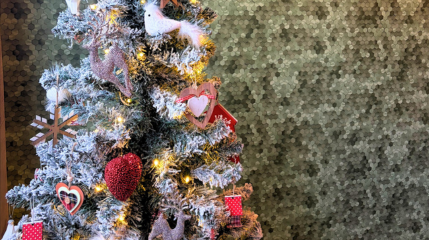
A guide to recycling
Why should you recycle?
As you've probably gathered by now, we're big believers in saving our planet – we even donated £3k to help Ripple start up their business, which remains the biggest zero-waste shop in Cardiff.
Recycling is a big part of looking after the earth and does wonders for the environment, but only if you're doing it properly! We've compiled top tips to help you avoid making some of the most common mistakes, so you can be confident that your recycling methods are as successful as possible.
How can you tell if something can be recycled?
Don't just guess what to do with your rubbish - the packaging very often states whether it can or can’t be recycled, or says which parts of it can and can’t.
Look for the Mobius loop on the packaging which will indicate the product can be recycled.
However, watch out for the two interlocking arrows! This symbol means the company’s invested in a recycling fund rather than the item being recyclable.
Terracycle items can be identified by the terracycle logo on them. Please check online where is your local drop off point.
Useful tip: A lot of things can be recycled, but they need to be cleaned out first (e.g. jars, yoghurt pots, containers that ready meals come in and packed meats). Give it a rinse and a wipe...if there’s a lot of contamination it costs more to be processed at a recycling centre, which consequently means it’s sent to landfill or to incinerators to be disposed of. Not good!
Many people think the items on this list below can be recycled...but they can't.
- Crisp packets and chocolate wrappers.
- Tissue paper and kitchen roll.
- Books, due to the glue that binds them together (we recommend you always donate these).
- Envelopes with windows are fine nowadays, but those that are padded with bubble wrap or are jiffy bags aren’t.
- Paper coffee cups are another sneaky one - people are often mislead into thinking they can be recycled as the sleeve that comes with them says “I’m recyclable”, but it only means the sleeve! Items like laminated paper and paper-bubble wrap envelopes also come under "combined materials" like this and cannot be recycled. Solution? Stop buying them where possible and always use a reusable cup!
- If it's smaller than a post-it note, it can't be recycled. Once collected, recycling must be sorted and anything extremely small cannot always be sorted properly. Those items may end up contaminating the correctly-sorted recycling as a result. A good way of thinking about it is to think "if it's smaller than a post-it note, it can't be recycled" (and on that note – if you’ll excuse the pun – post-it-notes can’t be recycled because of the glue on the adhesive strip!).
- Cardboard can be recycled, but sticky tape can't. So, be sure to remove it beforehand.
- A lot of items can’t go in your kerbside collection, but that doesn’t mean they can’t be recycled. Most supermarkets offer recycling collections points for used batteries. You can also take your old electrical items, clothing and garden waste to recycling waste centres. Better still, donate your clothes.
- Broken glass is a huge no-go! Always wrap it in old newspaper or a tea towel before putting in your general bin to prevent injury to you and whoever is handling it afterwards.
- Black plastic packaging is NOT recyclable. Recycling facilities sort plastics by bouncing a beam of light off them and since black plastic absorbs light, it can’t be sorted and goes straight to landfill. Thankfully, a lot of supermarkets are doing away with it.
- Foil, glittery or shiny wrapping paper. Thankfully more and more recyclable wrapping paper is being produced now. The best way to tell if wrapping paper is recyclable is the scrunch test. Scrunch the paper and it stays that way that’s a good indicator it can be recycled!
Useful tip: Flatten cardboard, juice cartons and plastic bottles to create more space.
How can you handle plastic waste responsibly?
Plastic is one of the most wide-spread materials and its popularity has sky rocketed the last few decades. Just for comparison, nowadays we use about 20 times more plastic than we did 50 years ago. Naturally, with ever increasing usage comes the need to manage plastic waste responsibly.
Why you ask? For once, we have limited space for landfills and recycling plastic reduces the amount of waste going into landfills. Plastic production also consumes a significant amount of energy and non-renewable fossil fuels and produces a number of harmful by-products such as carbon dioxide that have negative impact not only on our health, but also contribute to global warming. Every little bit counts, so don’t just chuck that plastic water bottle into the general waste bin!
Plastic can be used for a lot of things, from packaging to toys, and it’s not always easy to figure out what you can recycle and how. To try and help you, we’ve compiled a quick list of how you can figure it out!
There are 7 main groups of plastic and some of them you can recycle kerbside, whereas others might need to go to local recycling centres or may not even be recyclable at all!
The information contained within this article was correct at the date of publishing and is not guaranteed to remain correct in the present day.


